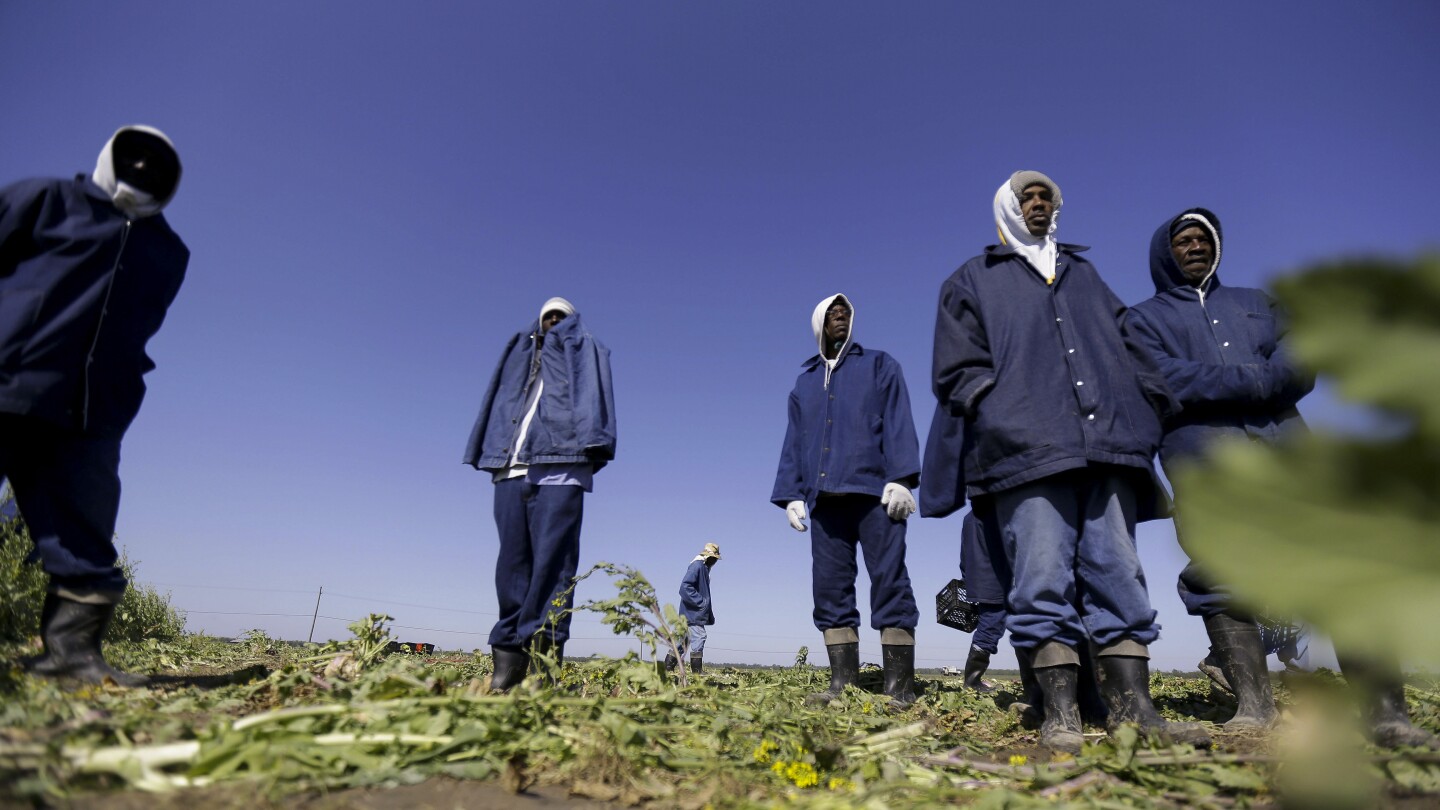Some prisoners work on the same plantation soil where slaves harvested cotton, tobacco and sugarcane more than 150 years ago, with some present-day images looking eerily similar to the past. In Louisiana, which has one of the country’s highest incarceration rates, men working on the “farm line” still stoop over crops stretching far into the distance.
In addition to tapping a cheap, reliable workforce, companies sometimes get tax credits and other financial incentives. Incarcerated workers also typically aren’t covered by the most basic protections, including workers’ compensation and federal safety standards. In many cases, they cannot file official complaints about poor working conditions.
For instance, the U.S. has blocked shipments of cotton coming from China, a top manufacturer of popular clothing brands, because it was produced by forced or prison labor. But crops harvested by U.S. prisoners have entered the supply chains of companies that export to China.
:reverse-uno:
Almost all of the country’s state and federal adult prisons have some sort of work program, employing around 800,000 people, the report said. It noted the vast majority of those jobs are connected to tasks like maintaining prisons, laundry or kitchen work, which typically pay a few cents an hour if anything at all. And the few who land the highest-paying state industry jobs may earn only a dollar an hour.
Altogether, labor tied specifically to goods and services produced through state prison industries brought in more than $2 billion in 2021, the ACLU report said. That includes everything from making mattresses to solar panels, but does not account for work-release and other programs run through local jails, detention and immigration centers and even drug and alcohol rehabilitation facilities.
During the six-year period the AP examined, surplus raw milk from a Wisconsin prison dairy went to BelGioioso Cheese, which makes Polly-O string cheese and other products that land in grocery stores nationwide like Whole Foods. A California prison provided almonds to Minturn Nut Company, a major producer and exporter. And until 2022, Colorado was raising water buffalo for milk that was sold to giant mozzarella cheesemaker Leprino Foods, which supplies major pizza companies like Domino’s, Pizza Hut and Papa John’s.
Its a great and harrowing article from ap, have a read


